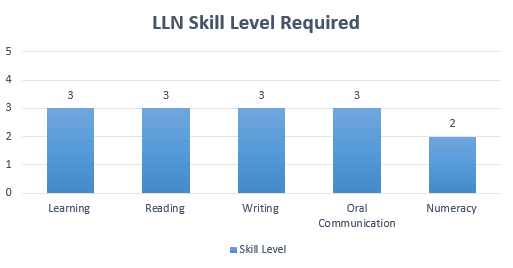For the most part, gambling is a social and recreational activity enjoyed by the majority of gamblers without any problems. However, there are a number of people who have significant gambling problems, causing harm to both themselves and important people in their lives. For yourself and those around you, it’s important to understand how to spot the signs that someone has a gambling problem.

As an employee in the gaming industry, it is your responsibility to provide an environment that is safe and supportive for everyone who takes part. That means offering assistance where needed and information about how problem gamblers can receive the kind of support services that may require.
By undertaking a RCG (Responsible Conduct of Gambling) course, you will be armed with the skills and knowledge to detect problem gamblers in the premises where you’re employed. You will be taught how to offer advice for those individuals to get the help they need if they so choose. Most venues will have their own code of conduct that must be approved by their state’s gambling regulation body, and will provide guidance for interacting with those who are showing signs of problem gambling.
Signs of a problem gambler
Amongst the thousands of patrons participating gambling, there are a number of tell tale signs that can ihelp to detect a problem gambler.
1. Playing regularly
Anyone who plays regularly, such as more than once a week on gaming machines, or spends long periods of time in the one spot (i.e. gaming machine) or venue is an indication of a gambling problem. Skipping meals or taking time off work to continue gambling are further key signs.
2. Changes in behaviour
There are several ways in which problem gamblers can exhibit behavioural cues that indicate problem gambling, such as:
-
- Sudden changes in behaviour, with patrons moving from pleasant to offensive in an instant.
-
- Poor anger management and abusive language.
- Violent outbursts against others, either in person at the venue, or on the phone to a betting outlet.
3. The blame game
Blaming others for their losses, or claiming the games are rigged to lose. Problem gamblers often declare that a specific object (i.e. gaming machine, horse, football team) owes them a win.
4. Outward signs of stress
Physical cues include perfuse sweating, crying, frustration and shaking. This could culminate in a verbal and/or physical outburst of a violent nature, or feelings of guilt and remorse.
5. Gambler’s fallacy
Often known as chasing the win, gamblers believe a win is just around the corner after a string of losses. Problem gamblers will continually gamble to try and recover their losses, which could culminate in betting larger amounts of money and taking more risks.
6. Borrowing money
This could include asking other patrons in the venue to borrow money, asking the venue to provide credit, or trying to sell personal belongings to patrons to raise additional gambling funds.
7. Sharing personal problems
Problem gamblers are four times more likely to have a drinking problem [Link to the article – ‘What are some of the key facts about gambling in Australia?’ ] . Alcohol lowers inhibitions and people are more likely to share personal information with you, such as an inability to pay bills, relationship problems, or stories about past gambling wins.
8. Lying and seclusion
Problem gamblers will lie to everyone about their whereabouts, take phone calls outside so as not to giveaway their location, and withdraw from socialising with others. They may even ask employees to lie on their behalf should they receive phone calls from people asking if they’re at the venue.
9. Concentration
Becoming so engaged in the betting activity, such as gaming machines, that they have no awareness or understanding about what is going on around them. At times this can result in problem gamblers falling asleep.
10. Trouble leaving
Problem gamblers may not want to leave the venue at closing time for a number of reasons:
-
- On a winning streak
-
- Chasing a win following a string of losses
-
- Don’t want to go home and face their family
- Don’t want to be alone
Helping someone with a gambling problem
Most people want to help those in need, regardless of what the problem might be. Compassion is a natural human reaction to seeing someone in trouble, but it can be difficult to take action for a number of reasons. However, despite any reluctance you may have, RSG legislation and the venue’s own code of conduct will require you to provide the problem gambler with a duty of care. While it can be a difficult step to take, it has been shown that staff who approach gamblers with gaming machine problems can have a positive impact in reducing their addictive behaviour1.
By enrolling and completing a RGG online course, you will learn how to identify a problem gambler, and the steps required to approach them and provide the assistance they potentially need. You have a legal and moral obligation to provide assistance, so make sure you’re well trained so problem gamblers can receive the best support possible.
1 Caraniche Pty Ltd. 2005. Evaluation of Electronic Gaming Machine Harm Minimisation Measures in Victoria. Final Report. Melbourne: Victorian Government Department of Justice



